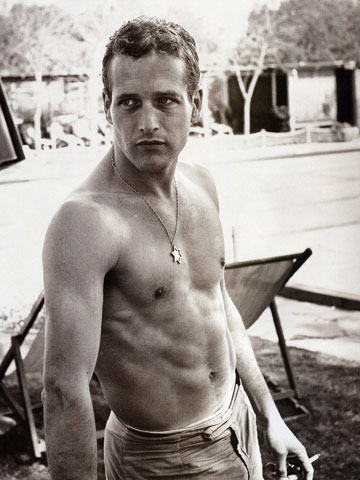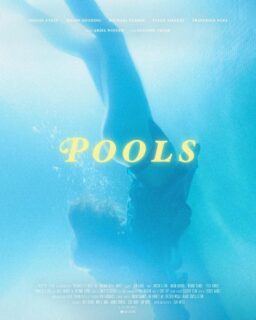Paul Newman, a sublime actor and a good man, is dead at 83. The movie legend died Friday at his home in Connecticut, a family spokeswoman said. The cause of death was lung cancer. Newman reportedly told his family he chose to die at home.
He lived a long and active life, encompassing acting and directing for stage and screen, philanthropy, political activism, auto racing, and the “Newman’s Own” line of foods.
After serving in World War II as a tail gunner, including missions in the Pacific from an aircraft carrier, Newman studied acting at Kenyon College and quickly found stardom on the stage. His Broadway career began in 1953, co-starring in the hit play “Picnic,” and as recently as this spring he was planning to direct a summer theater production of “Of Mice and Men,” until illness prevented him.
In 1954, he made his first film, “The Silver Chalice,” for which it amused him to apologize, and for more than 50 years, Newman ruled as one of Hollywood’s most-loved stars. There was scarcely a time when he did not have top billing. He was one of the heirs of Marlon Brando and the other late-1940s Method actors, but his acting seemed more naturalistic and less stylized. In mid-career, he played more anti-heroes than heroes. He made the transition quickly from a young heartthrob to one of the aristocrats of his profession.
He made some 60 films. He was nominated for nine Academy Awards, and won for “The Color of Money” (1986). He also won the Academy’s Honorary Award in 1986 and its Jean Hersholt Humanitarian Award in 1994. His Oscar came for playing the character Fast Eddie Felson, a pool hustler. He was also nominated for the film that introduced the character, “The Hustler” (1961). He made five films as a director, including four starring his wife of 50 years, Joanne Woodward. One of them, “Rachel, Rachel” (1968) won Woodward a nomination for best actress and her husband one for best director.
In addition to acting, Newman found success in auto racing, food retailing and political activism. His last work as an actor came this year, appearing in the INDYCar series season preview. Ironically, this most graceful of actors called racing “the first thing I found I had any grace in.” He started racing professionally in 1972, was still racing in 1995, and was anything but a gentleman amateur: In 1979, he finished second at Le Mans.
In 1982, he began a line of food products under the label Newman’s Own, starting with his own recipe for a salad dressing and adding spaghetti sauce, salsa, and of course popcorn. “The embarrassing thing is that my salad dressing is out-grossing my films,” he told the Times of London earlier this year. “All profits, recently passing the $250 million mark, went to charity. They helped him and Woodward to establish the “Hole in the Wall Gang” summer camps for sick children. There are now camps in Connecticut, Ireland, France and Israel. His company’s motto: “Shameless exploitation for the common good.”
An outspoken liberal, Newman placed 19th on Richard Nixon’s “enemies list,” and cited that as one of his proudest achievements.
How can you choose Newman’s best roles? He almost always had his choice of films, working with such directors as Martin Scorsese, Sidney Lumet, Martin Ritt, Richard Brooks, Otto Preminger, Arthur Penn, Alfred Hitchcock, George Roy Hill, Robert Altman, and the Coen brothers.
He had a huge hit in “Butch Cassidy and the Sundance Kid” (1969), co- starring with Robert Redford. They teamed again in “The Sting” (1973). His acting nominations came for “Cat on a Hot Tin Roof” (1958), “The Hustler,” (1961), “Hud” (1963), “Cool Hand Luke” (1967), “Absence of Malice” (1081), “The Verdict” (1982), “The Color of Money” (1986), “Nobody’s Fool” (1994) and “Road To Perdition” (2002).
Other important performances were as Rocky Graziano in “Somebody Up There Likes Me” (1956), as Billy the Kid in “The Left-Handed Gun” (1958), “Exodus” (1960), “Torn Curtain” (1966), “Slap Shot” (1977), “Fat Man And Little Boy” (1989), as Earl Long, brother of Huey, in “Blaze” (1989), with Woodward in “Mr. and Mrs. Bridge” (1980), and the Coens’ “Hudsucker Proxy” (1994).
His last major film role was in “Road To Perdition” (2002), filmed in Chicago. He played a mob boss, co-starring with Tom Hanks, who told me he was intimidated: “Oh, lordy! You can’t have a history of going to the movies and not be. Seeing his movies was a big time for me. So to be there on the set with him… No. 1, he’s much taller than you think he’s going to be. And No. 2, those eyes. The first take on the first day, I’m not thinking about my work, I’m thinking, ‘Holy cow! I’m in a movie looking into Paul Newman’s eyes. How did this happen?'”
He did some TV work and voice-overs for animation before announcing his retirement from acting in 2007, telling ABC: “You start to lose your memory, you start to lose your confidence, you start to lose your invention. So I think that’s pretty much a closed book for me.”
I met him several times, most memorably in 1968, on the set of “Butch Cassidy.” Yes, his eyes were blue. Very blue. He was genial, relaxed; it felt more like hanging out than doing an interview. Between scenes, he held court in his trailer, sometimes sipping a beer. He was not closed-off and self-protective like many superstars, not seeming overly impressed with himself. One reason he and Woodward lived in Connecticut, he often said, was to have a more normal life than was possible in Hollywood.
It was that sense of accessibility that audiences responded to. In a reconsideration of “Cool Hand Luke,” I observed: “Could another actor than Paul Newman have played the role and gotten away with it? Of the stars at the time, I would not be able to supply one. Warren Beatty? Steve McQueen? Lee Marvin? They would have the presence and stamina, but would have lacked the smile. The physical presence of Paul Newman is the reason this movie works: The smile, the innocent blue eyes, the lack of strutting. Look at his gentle behavior in the touching scene with his mother (Jo Van Fleet). Both know they will never see each other again, and in a way are apologizing.” The movie’s hardened character Dragline describes Luke as “you wild, beautiful thing.” Could he have described Marvin that way?
Newman didn’t do much publicity compared to most actors, and once described it to me this way: “It’s kind of an . . . well, not an ordeal, exactly, but doing so many interviews is like double parking in front of a whorehouse; scant satisfaction to both parties.”
Newman was born in 1925 in Shaker Heights, Ohio. From 1949 to 1958 he was married to Jackie Witte. They had a son, Scott, and daughters Susan and Stephanie. His son died of a drug overdose in 1978, and in his memory Newman started a drug abuse center. He married Woodward in 1958. They had three daughters, Elinor, Melissa and Claire.
Newman was known for his modesty. He once said he could envision these words on his tombstone: “Here lies Paul Newman, who died a failure because his eyes turned brown.”
In a book about the actor, the writer Lawrence J. Quirk quotes Newman: “I’d like to be remembered as a guy who tried — tried to be part of his times, tried to help people communicate with one another, tried to find some decency in his own life, tried to extend himself as a human being. Someone who isn’t complacent, who doesn’t cop out.”
Acknowledgement: Wikipedia.com. Both “The Hustler” and “Cool Hand Luke” are in the Great Movies collection at rogerebert.com.












